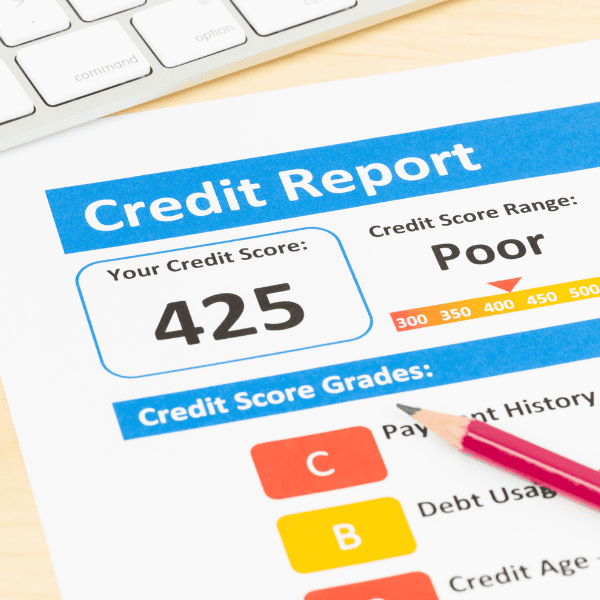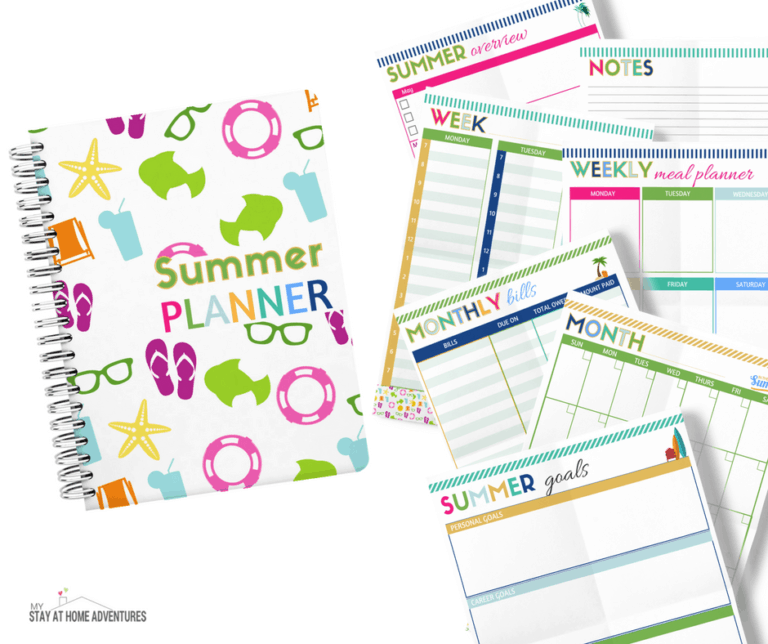15 Ways to Reduce Your Spending Today (That Will Save You Big!)
This post may contain affiliate links which might earn us money. Please read my Disclosure and Privacy policies hereIn today's fast-paced world, it's easy to overspend and stress about finances. Whether you're saving for a big purchase, paying off debt, or just want to be more mindful of your money, there are practical strategies you can adopt right now.
This post will guide you through 15 effective ways to reduce your spending today without sacrificing your quality of life. By the end, you'll be equipped with actionable tips that can help you save more and live better.

Why Reducing Spending Matters
Before diving into specific strategies, let's discuss why reducing spending is crucial. Saving money isn't just about cutting costs; it's about creating financial security and freedom.
By spending less, you can build an emergency fund, invest in your future, and enjoy peace of mind knowing you're financially stable. With these goals in mind, let's explore how you can start saving today.
1. Create a Budget and Stick To It
A budget is the foundation of financial health. Begin by listing all your monthly income and expenses, then categorize them into needs and wants. Use budgeting apps like Mint or YNAB to track your spending. A clear budget helps you see where your money goes and where you can cut back.
Benefits of Budgeting
Budgeting provides a clear picture of your financial situation. It allows you to set realistic savings goals and helps prevent overspending. By adhering to a budget, you're more likely to achieve your financial objectives. To help you stay on top of your finances, consider exploring Albert budgeting to get insights on tracking your spending and saving more efficiently.
Tips for Effective Budgeting
- Review your budget regularly to ensure it aligns with your financial goals.
- Adjust your budget as needed to accommodate changes in income or expenses.
- Keep track of every dollar you spend to stay within your budget.
2. Cut Down on Subscriptions
We all love subscriptions, but they can quickly add up. Review all your subscriptions and cancel those you rarely use. Services like Truebill can help identify and manage unwanted subscriptions.
Assess Your Subscriptions
Make a list of all your subscriptions—streaming services, magazines, gym memberships, etc. Determine which ones you genuinely use and enjoy. Cancel any that don't provide value.
Consolidate and Share
For subscriptions you want to keep, consider sharing them with family or friends to split the cost. Many streaming services offer family plans that can save you money.
3. Cook More at Home
Eating out is convenient but expensive. Cooking at home not only saves money but also allows you to eat healthier. Plan your meals, make a shopping list, and stick to it.
Benefits of Home Cooking
Cooking at home can significantly reduce your food expenses. It also allows you to control the ingredients and portion sizes, leading to healthier eating habits.
Meal Planning Tips
- Plan your meals for the week and create a shopping list based on your meal plan.
- Cook in batches and freeze leftovers for quick, budget-friendly meals.
- Experiment with budget-friendly recipes to keep meals interesting.
4. Use Public Transportation
Car expenses can be a significant drain on your budget. Consider using public transportation, biking, or carpooling to reduce costs. Public transport can save you money on gas, maintenance, and parking fees.
Advantages of Public Transport
Public transportation is often cheaper than driving and can help you avoid the hassle of parking. It's also better for the environment, reducing your carbon footprint.
Make the Switch
- Research public transportation options in your area.
- Plan your commute and familiarize yourself with schedules and routes.
- Consider biking or walking for shorter trips to save even more money.
5. Shop Second-Hand
Buying used items can save you a lot of money. Thrift stores, consignment shops, and online marketplaces like eBay and Facebook Marketplace offer great deals on clothes, furniture, and electronics.
Benefits of Second-Hand Shopping
Second-hand items are often significantly cheaper than new ones. You can find high-quality, gently used products at a fraction of the cost. It's also an environmentally friendly choice, reducing waste and promoting recycling.
Tips for Successful Thrifting
- Know what you need and set a budget before shopping.
- Inspect items carefully for quality and functionality.
- Be patient and persistent—great deals often require a bit of searching.

6. Reduce Energy Consumption
Lowering your energy usage can lead to significant savings on utility bills. Simple changes like turning off lights, using energy-efficient appliances, and adjusting your thermostat can make a big difference.
Energy-Saving Tips
- Use LED light bulbs and turn off lights when not in use.
- Unplug appliances and electronics when they're not in use.
- Set your thermostat a few degrees lower in winter and higher in summer.
Long-Term Investments
Consider investing in energy-efficient appliances and proper insulation for your home. While these may have upfront costs, they can pay off in the long run with reduced energy bills.
7. Limit Impulse Purchases
Impulse buying can quickly drain your bank account. To curb this habit, create a list before shopping and stick to it. Avoid browsing online stores when you're bored or stressed.
Strategies to Avoid Impulse Buying
- Wait 24 hours before making a non-essential purchase.
- Use cash instead of credit cards to limit spending.
- Identify triggers that lead to impulse buying and find alternatives.
Check out these money posts:
- 5 Steps To Creating Goals For A Better You In 2018
- 6 Things You Are Not Doing That Are Costing You Money
- 3 Best Money Saving Plans Strategies You Need To Follow
8. DIY Whenever Possible
From home repairs to beauty treatments, doing things yourself can save a lot of money. There are countless online tutorials and resources to guide you through various DIY projects.
Benefits of DIY
DIY projects can save you money and give you a sense of accomplishment. You can learn new skills and customize projects to suit your preferences.
Getting Started with DIY
- Start with small, manageable projects and gradually take on more complex tasks.
- Use online resources like YouTube and DIY blogs for guidance.
- Invest in basic tools and supplies that you'll use frequently.
9. Negotiate Bills and Subscriptions
Many service providers are open to negotiation. Contact your cable, internet, or phone company and ask for a better rate. You might be surprised at how much you can save by simply asking.
Tips for Successful Negotiation
- Research competitor prices and use them as leverage.
- Be polite but firm in your request for a better rate.
- Ask about any available discounts or promotions.
10. Use Coupons and Discounts
Coupons and discounts can lead to significant savings on everyday purchases. Look for coupons in newspapers, online coupon websites, and store loyalty programs.
Where to Find Coupons
- Check coupon websites like Coupons.com and RetailMeNot.
- Sign up for store loyalty programs to receive exclusive discounts.
- Follow your favorite brands on social media for special offers.
Smart Couponing Tips
- Combine coupons with sales for maximum savings.
- Only use coupons for items you already plan to buy.
- Keep track of expiration dates and use coupons before they expire.

11. Plan Your Grocery Shopping
Grocery shopping can be a major expense, but planning ahead can help you save. Create a weekly meal plan, make a shopping list, and stick to it.
Benefits of Planned Shopping
Planning your grocery shopping reduces impulse buys and food waste. You'll buy only what you need and avoid unnecessary trips to the store.
Tips for Effective Grocery Planning
- Plan meals based on what's on sale and in season.
- Buy in bulk for items you use frequently.
- Avoid shopping when you're hungry to prevent impulse buys.
12. Cancel Unused Gym Memberships
Gym memberships can be costly, especially if you rarely use them. Consider canceling your membership and finding alternative ways to stay active.
Alternatives to Gym Memberships
- Try home workouts using online videos or fitness apps.
- Join a local sports team or fitness group.
- Take advantage of free outdoor activities like running or hiking.
Benefits of Exercising at Home
Exercising at home saves money and offers convenience. You can work out on your own schedule without the need to commute to a gym.
13. Reduce Credit Card Debt
High-interest credit card debt can be a significant financial burden. Focus on paying down your debt to save on interest and improve your financial health.
Strategies for Reducing Debt
- Pay more than the minimum payment each month.
- Use the snowball method to pay off the smallest debts first.
- Consider a balance transfer to a card with a lower interest rate.
Benefits of Reducing Debt
Reducing credit card debt frees up money for savings and investments. It also improves your credit score and reduces financial stress.
14. Avoid Brand-Name Products
Brand-name products often come with a higher price tag. Opt for generic or store-brand items, which are usually just as good as their branded counterparts.
Benefits of Generic Products
Generic products are typically cheaper and offer similar quality to brand-name items. You can save a significant amount by making this switch.
Tips for Choosing Generics
- Compare the ingredients and quality of generic and brand-name products.
- Start with non-perishable items like cleaning supplies and toiletries.
- Gradually switch to generic food items and see if you notice a difference.
15. Limit Entertainment Expenses
Entertainment expenses, like movie tickets and dining out, can add up quickly. Find budget-friendly alternatives to enjoy your leisure time without breaking the bank.
Budget-Friendly Entertainment Ideas
- Host a movie night at home with friends.
- Explore free or low-cost community events and activities.
- Take advantage of library resources for books, movies, and more.
Benefits of Budget Entertainment
You can still have fun while saving money. Budget-friendly entertainment options often lead to memorable experiences without the hefty price tag.
Check out these money posts:
- Are you following these 5 personal financial rules?
- Fighting Back The Urge To Spend Money – 5 Tips to Help You!
- 6 Incredible Monthly Money Challenges

Start Saving Today!
Reducing spending doesn't have to mean sacrificing your lifestyle. By implementing these 15 strategies, you can start saving money today while still enjoying the things you love.
Remember, small changes add up over time. Pick a few tips to get started, and gradually incorporate more into your routine. Your future self will thank you!
Ready to take control of your finances? Start by creating a budget and exploring other tips from our blog. Happy saving!








Good tips! We’ve been on a budget for a couple of months and were doing well until my son got sick. Thankfully we keep a little rollover for times like this. We’ll try again for May.
I don’t think I can prepare myself enough when one of us get sick. I hope your son is feeling better and I completely get what you are saying. The good thing is that you are picking right back up.
These are great tips, Joyce! We like to start planning for our home improvement and gardening projects in the Spring so we adjust our budget accordingly to accommodate that. And then if we do go over, we’ll put a spending freeze on.
Right now I’m on a list. I have went over what we need to purchase and see if we can find it on deal. For that reason alone we are on a freeze until later. We have a few things planned for the summer and we have to follow our budget in order to enjoy our summer.
Such great tips! I definitely agree with avoiding deal sites because they are often the pull to get you to spend a lot more than you planned. When I see a promo code it usually requires a minimum spend too…which I’m sure is all part of the plan, ha!
You just described me! HAHA! Deal sites are terrible and they normally get me around holidays. I’m like OK well If I spend this amount I’ll get the deal.
Other than the going out to eat, reading this made me feel pretty good about my springtime savings!
Good for you Leanne! We have so much little trips planned and we are so trying to be good during this spring.